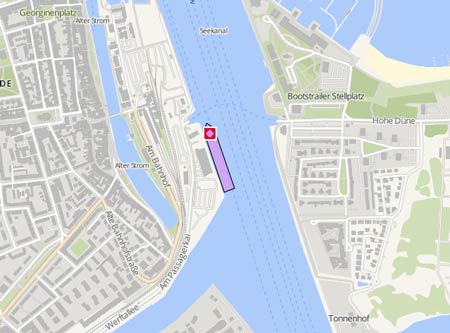SAFE SCANDINAVIA
Kurs/Position
vor 3 Min
Die letzten Häfen
Die letzten Wegpunkte
Die neuesten Nachrichten
Rig to be recycled
Prosafe SE, an owner and operator of semi-submersible accommodation vessels, has entered into an agreement through a wholly owned subsidiary to sell the ‘Safe Scandianvia’ for recycling. The vessel has been in cold layup in Norway for over six years. The recycling is set to be completed in full compliance with all relevant conventions and regulations, with delivery expected by Q2 2025. The sale is part of Prosafe’s ongoing fleet optimization strategy, ensuring that the vessel is disposed of in an environmentally responsible manner. Prosafe SE is a Norwegian company listed on the Oslo Stock Exchange specializing in the ownership and operation of semi-submersible accommodation vessels. The company is involved in providing offshore accommodation solutions to the energy sector, particularly in harsh environments.
Prosafe gets Safe Scandinavia extension from Aker BP
Offshore accomodation vessels specialist Prosafe has announced that Aker BP has has exercised an extension for Safe Scandinavia. Aker BP has taken the second of three one-week options, valued at around $1m. The extension keeps the vessel operating with Aker BP through to mid-May 2019
DNV GL carries out its first offshore drone survey
DNV GL surveyors have carried out the classification society’s first offshore drone survey on the semisubmersible vessel Safe Scandinavia in the North Sea. This 25,383 GT tender support vessel (TSV) is owned and operated by Prosafe, supporting Statoil’s drilling operations off the coast of Norway. Using camera-equipped drones, DNV GL’s drone pilots checked the TSV’s fairleads and their connection with the vessel’s two columns as part of the intermediate survey. The classification society has carried out multiple drone surveys on both ships and offshore units, inspecting many areas on board, ranging from tanks and cargo holds to external structures such as jack-up legs. The inspection of such spaces can be both costly and time consuming, and even in some instances potentially dangerous. Using drones to visually check the condition of remote structural components can significantly reduce survey times and staging costs, while at the same time improving surveyor safety. DNV GL has built a network of trained drone pilots based in Gdynia, Piraeus, Singapore, Houston and Shanghai. This allows drone survey inspections to be offered from any of these hubs. At the same time, DNV GL is developing guidelines and updating our rule set to reflect the use of remote inspection techniques.
News schreiben

